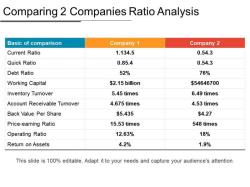What is an example of an investment company?
An example of an investment company is Vanguard Group. Vanguard is one of the largest and most well-known investment management companies in the world. It was founded in 1975 by John C. Bogle and is headquartered in Valley Forge, Pennsylvania, USA. Vanguard offers a wide range of investment products and services, including mutual funds, exchange-traded funds (ETFs), and retirement accounts.
Types of Investment Companies:
Mutual Fund Companies: Mutual fund companies pool money from individual investors and use it to invest in a diversified portfolio of stocks, bonds, or other securities. Investors in mutual funds own shares of the fund, and the fund's value is determined by the performance of its underlying assets.
Exchange-Traded Fund (ETF) Providers: ETF providers, like Vanguard, create and manage ETFs. ETFs are similar to mutual funds but are traded on stock exchanges like individual stocks. They offer investors a way to buy into a diversified portfolio of assets with the flexibility of trading them throughout the day.
Investment Management Firms: These companies provide portfolio management services to individuals, institutions, and other investors. They may offer customized investment solutions and actively manage client portfolios.
Private Equity and Venture Capital Firms: These firms invest in private companies and startups with the aim of providing capital for growth and later-stage investments. They often take an active role in the management and development of the companies they invest in.
Functions of Investment Companies:
Portfolio Management: Investment companies select and manage portfolios of financial assets on behalf of their clients. This involves making investment decisions, asset allocation, and ongoing monitoring of the portfolio's performance.
Diversification: Investment companies provide investors with access to diversified portfolios of assets, reducing risk by spreading investments across different types of securities.
Professional Expertise: Investment professionals at these companies conduct research, analysis, and due diligence to make informed investment decisions on behalf of their clients.
Risk Management: Investment companies help clients manage risk by offering a range of investment options with different risk profiles, such as conservative, balanced, or aggressive portfolios.
Investment Products: They create and manage various investment products, including mutual funds, ETFs, and managed accounts, to cater to the diverse needs and risk preferences of investors.
Client Services: Investment companies offer services such as financial planning, retirement planning, and investment advice to assist clients in achieving their financial goals.
Administrative Services: Many investment companies provide administrative support for retirement accounts, including 401(k)s and IRAs, to help clients save and invest for the future.
Vanguard Group, for example, is known for its low-cost index funds and ETFs, which aim to provide investors with broad market exposure at a low cost. Investment companies like Vanguard play a crucial role in the financial markets by helping individuals and institutions access investment opportunities and manage their wealth effectively.
Investment Company Examples: A Diverse Landscape
Investment companies come in all shapes and sizes, and they invest in a wide range of asset classes. Here are a few examples of different types of investment companies:
- Mutual funds: Mutual funds are open-end investment companies that pool money from investors to invest in a portfolio of securities. Mutual funds offer investors a variety of investment options, including stock funds, bond funds, and money market funds.
- Exchange-traded funds (ETFs): ETFs are similar to mutual funds, but they trade like stocks on an exchange. ETFs can be a good option for investors who want to invest in a particular market sector or index.
- Closed-end funds: Closed-end funds are investment companies that issue a fixed number of shares. Once the shares are issued, the fund cannot create new shares. Closed-end funds can trade at a premium or discount to their net asset value (NAV).
- Unit investment trusts (UITs): UITs are investment companies that invest in a fixed portfolio of securities. UITs typically have a set maturity date, and investors redeem their shares at the NAV on the maturity date.
- Hedge funds: Hedge funds are investment companies that use a variety of strategies to generate returns, including leverage and short selling. Hedge funds are typically only available to accredited investors.
Investing Opportunities: Real-Life Examples of Investment Companies
Here are a few examples of real-life investment companies:
- Fidelity Investments: Fidelity Investments is one of the largest mutual fund companies in the world. Fidelity offers a wide range of mutual funds and ETFs, including stock funds, bond funds, and money market funds.
- Vanguard Group: Vanguard Group is another large mutual fund company. Vanguard is known for its low-cost index funds.
- iShares: iShares is a provider of ETFs. iShares offers ETFs that track a variety of market indices, including the S&P 500 and the Dow Jones Industrial Average.
- BlackRock: BlackRock is a large investment management firm that offers a variety of investment products, including mutual funds, ETFs, and hedge funds.
- Bridgewater Associates: Bridgewater Associates is one of the largest hedge funds in the world. Bridgewater's flagship fund, the Pure Alpha Fund, has generated impressive returns over the long term.
Putting Your Money to Work: Profiles of Investment Company Types
When choosing an investment company, it is important to consider your investment goals, risk tolerance, and time horizon. Here is a brief profile of each type of investment company:
- Mutual funds: Mutual funds are a good option for investors who want a diversified portfolio of investments. Mutual funds offer a variety of investment options, and they are relatively easy to buy and sell.
- ETFs: ETFs are a good option for investors who want to invest in a particular market sector or index. ETFs are also a good option for investors who want to trade more frequently.
- Closed-end funds: Closed-end funds can be a good option for investors who are looking for a specific investment strategy. Closed-end funds can also be a good option for investors who want to generate income.
- UITs: UITs are a good option for investors who are looking for a fixed portfolio of investments. UITs can also be a good option for investors who want to invest in a particular sector or asset class.
- Hedge funds: Hedge funds are a good option for sophisticated investors who are looking for high returns. However, hedge funds are also riskier than other types of investment companies.
It is important to do your research before investing in any investment company. You should read the company's prospectus and compare the fees and expenses of different funds. You should also consider the fund's investment strategy and performance history.












